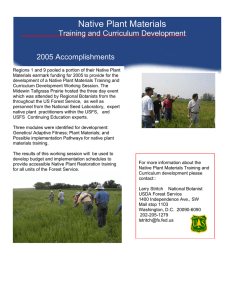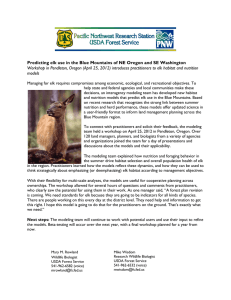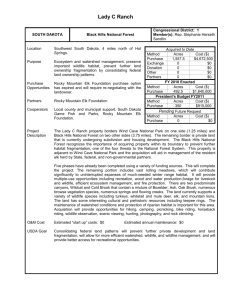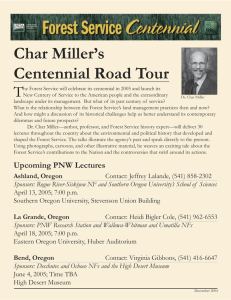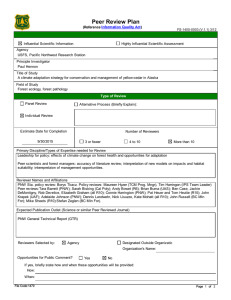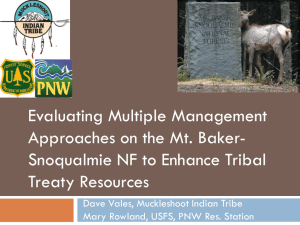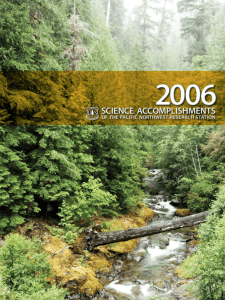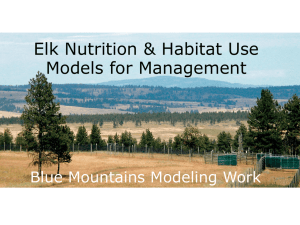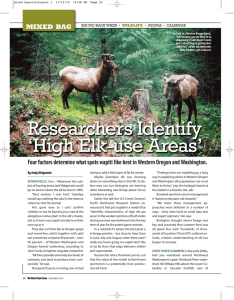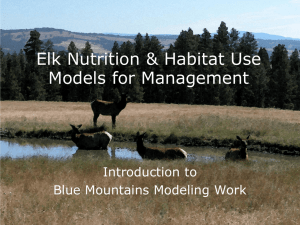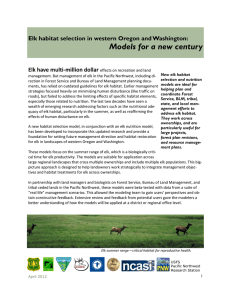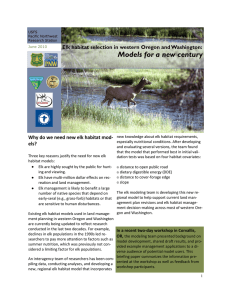Model Diagram Blue Mountains Elk Habitat Modeling Workshop April 25, 2012
advertisement
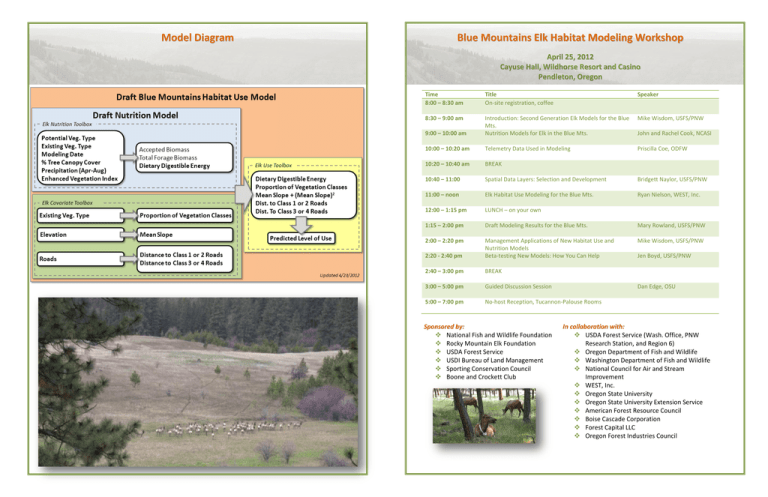
Model Diagram Blue Mountains Elk Habitat Modeling Workshop April 25, 2012 Cayuse Hall, Wildhorse Resort and Casino Pendleton, Oregon Time 8:00 – 8:30 am Title On-site registration, coffee Speaker 8:30 – 9:00 am Mike Wisdom, USFS/PNW 9:00 – 10:00 am Introduction: Second Generation Elk Models for the Blue Mts. Nutrition Models for Elk in the Blue Mts. 10:00 – 10:20 am Telemetry Data Used in Modeling Priscilla Coe, ODFW 10:20 – 10:40 am BREAK 10:40 – 11:00 Spatial Data Layers: Selection and Development Bridgett Naylor, USFS/PNW 11:00 – noon Elk Habitat Use Modeling for the Blue Mts. Ryan Nielson, WEST, Inc. 12:00 – 1:15 pm LUNCH – on your own 1:15 – 2:00 pm Draft Modeling Results for the Blue Mts. Mary Rowland, USFS/PNW 2:00 – 2:20 pm Mike Wisdom, USFS/PNW 2:20 - 2:40 pm Management Applications of New Habitat Use and Nutrition Models Beta-testing New Models: How You Can Help 2:40 – 3:00 pm BREAK 3:00 – 5:00 pm Guided Discussion Session 5:00 – 7:00 pm No-host Reception, Tucannon-Palouse Rooms Sponsored by: National Fish and Wildlife Foundation Rocky Mountain Elk Foundation USDA Forest Service USDI Bureau of Land Management Sporting Conservation Council Boone and Crockett Club John and Rachel Cook, NCASI Jen Boyd, USFS/PNW Dan Edge, OSU In collaboration with: USDA Forest Service (Wash. Office, PNW Research Station, and Region 6) Oregon Department of Fish and Wildlife Washington Department of Fish and Wildlife National Council for Air and Stream Improvement WEST, Inc. Oregon State University Oregon State University Extension Service American Forest Resource Council Boise Cascade Corporation Forest Capital LLC Oregon Forest Industries Council Blue Mountains Elk Habitat Use Modeling Areas Modeling Covariates Considered Nutrition: Mean dietary digestible energy (DDE) Mean accepted biomass (AB) Mean total (forage) biomass (FB) Mean EVI (Enhanced Vegetation Index) Human disturbance: Distance to road, all types Density of all roads Distance to roads and trails open to public motorized use Density of roads and trails open to public motorized use Distance to closed road Distance to class 1 road Distance to class 2 road Distance to class 3 road Distance to class 4 road Distance to class 4 or greater road Distance to class 1 or 2 road Distance to class 3 or 4 road Vegetation: Proportion of vegetation classes Mean overstory canopy cover (CC) Dominant CC class Cover-forage ratio Percent of area in cover Distance to cover-forage edge Distance to cover patch (3 patch sizes) Distance to agricultural land Physical/ Other: Mean percent slope Dominant slope class Percent area in flat to gentle slopes Percent area in moderate to steep slopes Percent area in very steep slopes Cosine and sine of aspect Convexity Mean solar radiation Mean soil depth Distance to water Distance to pond Distance to stream Dominant landowner Cattle Resource Selection Functions *Bold font indicates covariates brought forward in final model selection process.
